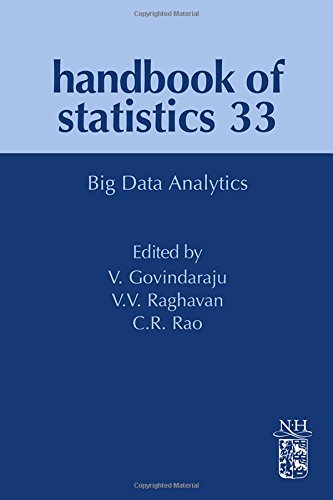

Most ebook files are in PDF format, so you can easily read them using various software such as Foxit Reader or directly on the Google Chrome browser.
Some ebook files are released by publishers in other formats such as .awz, .mobi, .epub, .fb2, etc. You may need to install specific software to read these formats on mobile/PC, such as Calibre.
Please read the tutorial at this link. https://ebooknice.com/page/post?id=faq
We offer FREE conversion to the popular formats you request; however, this may take some time. Therefore, right after payment, please email us, and we will try to provide the service as quickly as possible.
For some exceptional file formats or broken links (if any), please refrain from opening any disputes. Instead, email us first, and we will try to assist within a maximum of 6 hours.
EbookNice Team

Status:
Available0.0
0 reviewsWhile the term Big Data is open to varying interpretation, it is quite clear that the Volume, Velocity, and Variety (3Vs) of data have impacted every aspect of computational science and its applications. The volume of data is increasing at a phenomenal rate and a majority of it is unstructured. With big data, the volume is so large that processing it using traditional database and software techniques is difficult, if not impossible. The drivers are the ubiquitous sensors, devices, social networks and the all-pervasive web. Scientists are increasingly looking to derive insights from the massive quantity of data to create new knowledge. In common usage, Big Data has come to refer simply to the use of predictive analytics or other certain advanced methods to extract value from data, without any required magnitude thereon. Challenges include analysis, capture, curation, search, sharing, storage, transfer, visualization, and information privacy. While there are challenges, there are huge opportunities emerging in the fields of Machine Learning, Data Mining, Statistics, Human-Computer Interfaces and Distributed Systems to address ways to analyze and reason with this data. The edited volume focuses on the challenges and opportunities posed by "Big Data" in a variety of domains and how statistical techniques and innovative algorithms can help glean insights and accelerate discovery. Big data has the potential to help companies improve operations and make faster, more intelligent decisions.